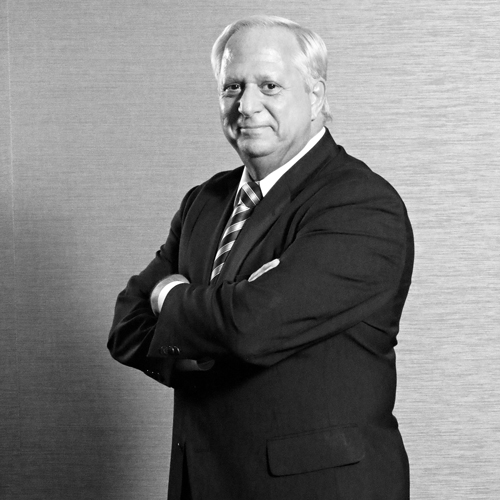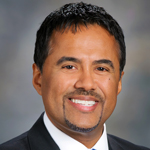
“Nine to five” isn’t in Gina Merritt-Epps’s vocabulary. When the general counsel and corporate secretary of South Jersey Industries (SJI) isn’t doing her day job, she’s giving back to the community through volunteer work with dozens of causes. “With my job at SJI and being a mother of a sixteen-year-old, I have no idea how I have the time,” she laughs.
Merritt-Epps, enamored with the idea of helping people under the structure of rules and processes, knew from an early age she wanted to be a lawyer. After receiving a bachelor’s degree in political science from Pennsylvania State University and a juris doctor from Howard University School of Law, she quickly found her way into the public sector, serving as assistant county counsel for the Atlantic County Department of Law. “I worked in private practice for a few years first. The move to Atlantic County, where I worked on the civil side of government law, was an eye-opener for me,” Merritt-Epps says. “Often, law students still believe that the best jobs during school or graduation are those at firms or in criminal work as a prosecutor or public defender. My work for county government showed me that there are other places where you can be successful and enjoy what you do.”
In 2006, Merritt-Epps parlayed her public-sector experience into a position with SJI, parent company to South Jersey Gas, one of the nation’s fastest-growing natural-gas utilities, and South Jersey Energy Solutions, which operates a number of energy-related services, many of which promote renewable energy. Within three years, she was promoted from director of legal affairs to corporate counsel and secretary, and in 2012 took on her current roles. So far, it’s a good fit. “I like the variety,” Merritt-Epps says. “I can be as hands on as I want to be, doing the things I would have done in a law firm, like contract drafting and review, and litigation. But I can also take on administrative processes, like supervising younger attorneys—in essence, serving as an executive who just happens to be a lawyer as well. I also enjoy the separate corporate secretary role, which includes working with the board of directors and advising on corporate governance.”
Beyond her day job, Merritt-Epps supports several nonprofit organizations, a passion she discovered in college as a member of Zeta Phi Beta Sorority. “As is the case with the historically African American organizations, joining is a lifelong commitment,” she says. “You’re expected to leave college and join a graduate chapter.” Serving as state director of the organization is like another full-time job, as Merritt-Epps is charged with implementing the initiatives of the international president and the premier community-service organization, including Zeta Helping Other People Excel (Z-HOPE), an outreach service program designed to empower people from all walks of life.
When she worked in private practice, Merritt-Epps served on the board of directors for the United Way in Atlantic County, an experience she says was “a good foray into the nonprofit world, because it showed me what the community’s needs were and how the organization works.”
The experience was so positive that Merritt-Epps later become a charter member of the Women’s Leadership Initiative of the United Way, which helps women support Success By 6, an organization committed to ensuring that children under the age of six enter school prepared to be successful thereafter. “I learned a lot from this position, not just about the efforts of that particular charity, but about the broader idea of philanthropy, giving back, and helping other people,” Merritt-Epps says.
Today, in most cases, Merritt-Epps sees her day job and causes intertwine. Serving on the board of the Philadelphia-based Forum of Executive Women, for example, Merritt-Epps works to leverage the power of executive women. Similarly, she’s involved in two affinity groups at SJI: the Women’s Leadership Initiative of South Jersey Industries, which provides opportunities for women to learn and grow in a male-dominated industry, and the American Association of Blacks in Energy, which ensures the input of minorities into the discussions and developments of energy policies and regulations. As an African American woman, Merritt-Epps says, these organizations are close to her heart.
But Merritt-Epps’s volunteer efforts expand beyond providing assistance to minorities, as illustrated by her advisory role with the Lloyd D. Levenson Institute of Gaming, Hospitality, and Tourism. The organization, which promotes the tourism industry in Atlantic City and the surrounding resort areas, helps college students pursue careers in hospitality—which Merritt-Epps says ties back to her day job. “Being an energy company that serves the Atlantic City area, we’re invested in the success of the tourism industry, which needs natural gas,” she says.
In choosing what organizations to support, Merritt-Epps looks for two things: “Am I helping someone else in giving back, and/or is this organization helping me with my day job?” she asks. As examples, Merritt-Epps points to Corporate Counsel Women of Color, the Society of Corporate Secretaries and Governance Professionals, and the American Gas Association, all of which she’s been involved in. “They’re all tied to what I do in the gas and energy industry or the legal world, and they have all been valuable networking tools, allowing me to get the perspective of other organizations and bring the South Jersey Industries perspective to other organizations,” she says.
If it all sounds like a lot for one person to handle, it is. Key to staying on top of her many commitments, says Merritt-Epps, is being organized. “My office may not look like it, but I’ve implemented a structure that keeps me sane. I come in by 6:00 a.m. at least one day a week to get work done when no one else is here, and I try to avoid meetings on Mondays and Fridays. That makes Tuesdays, Wednesdays, and Thursdays frantic, but I know I’ll have some desk time.”
Also important, says Merritt-Epps, is having a solid team of lawyers and assistants. “Law school breeds competition, and you’re taught that you need to be the one who did it and you need to be the one who takes credit for it,” she says. “But when you come in-house, you have to understand that it’s not about you, but about the company. And to serve the company, you need to collaborate, and to do that, you need to have a great team of people you trust.”

